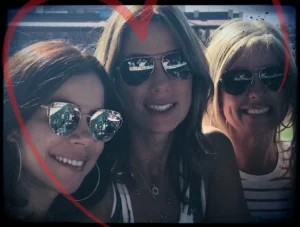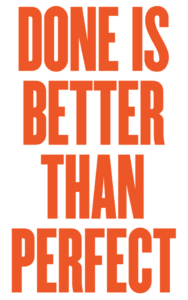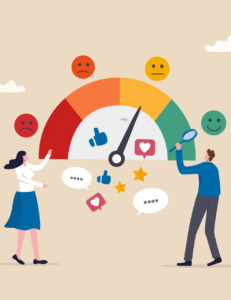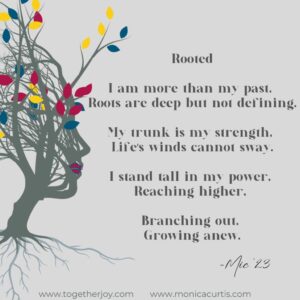
And then I realized that to be more alive I had to be less afraid so I did it… I lost my fear and gained my whole life ~Rudy Francisco
This reminds me of her, my friend Cheryl. Living less afraid.
Her life resembles the cover of her first novel, The Other Side of Sanctuary, a bed of stones leading to the water’s edge. My friend has been walking on rocks her entire life. Lately, some rocks have cut her deeply. The edges have been sharp, painful, and with layers of complexities.
To really know her, one must pay close attention to the quiet space between the stones; this is where her truth lives. Ironic, a gifted author, words come easy, yet not all words are given the same reverence. Fictional events are granted paper to set root; non-fiction is complicated. The words exist but struggle to break free. She is cautious and protective. Yet, I have noticed that the more her feet get slashed, the lighter she gets, the less afraid she becomes.
These days she approaches the water’s edge with calmness. Surrendering. Skipping stones, setting painful words free, skimming along the water, ultimately sinking.
Thanks, friend, for trusting me with your words and for revealing a painful cut. I hope you continue to find peace at the water’s edge as you remember your perfect Cynde.
XXOO,


Perfect To Me
By Cheryl Crabb
Last March, once our state’s stay-at-home order took hold, my hair became untamed. I tried to tamp it down with various products, including the entire line of “Perfect hair Day” by “Living proof.” When none of that worked, I forced myself to blow out my hair as I would have before the pandemic. Except, as cases of Covid-19 exploded in Michigan, no one was going anywhere other than the grocery store or pharmacy.
A month later, long after I’d run out of all my products and regardless of how I tried to style my hair, it stuck to my head flat and broken. They say, during the pandemic, that your hair reflects your mood. I accepted that I might have a bad hair day every day during the pandemic. Then, looking a little closer in the mirror, I noticed that my hair had grown an inch or two as I had been wishing it would have for years. Soon it might reach my shoulders, I thought. Secretly, I fantasized that my hair would actually look better after all this was over, once I could return to the salon for a cut and color.
I had tried coloring my hair at home to cover the gray roots. With a little help from my husband, my DIY dye job worked remarkably well. Our small success gave me hope that bit by bit—in our own whacky way—we would get through the pandemic.

Then on Sunday, May 3, after the extension of the governor’s order to stay home, I received news from my mother. She texted “call me.” My mother rarely texted. Something must be wrong.
I called her back right away. “What’s up?”
She swallowed. “Cynde is dead.”
“How?” I asked.
She couldn’t bring herself to tell me, so I guessed until I got it. “Suicide.”
Cynde. My oldest friend. My next-door neighbor growing up. My roommate in Chicago after college. My bridesmaid. My lifelong confidant as noted in the acknowledgments for my debut novel that came out in January 2020. She’d been like a sister to me for half a century.
Though she’d been going through a divorce, I couldn’t fathom her taking her own life. She was the bubbly one, always there for her two daughters, and never too busy to support her community or a friend-in-need like me when I was diagnosed with breast cancer in January 2019. Though it was her 50th birthday that month, she drove from Wisconsin to Michigan to visit me after my mastectomy and before my upcoming radiation treatments. We commiserated. Bonded over us both going through a rough patch. Yet, over coffee and bagels, we vowed to push through. She’d started seeing someone new, found a new job, and begun trying to move forward. We pampered ourselves with a pedicure. Afterward, her realtor called to say that the house she’d just listed was sold. Cynde, it appeared, could conquer anything. She gave me hope that I could too. Cancer wasn’t going to kill me or my career. Somehow, I would find a way to persevere. Despite her ongoing struggles, she seemed equally determined to build a new life.
Near the end of that year, a few days before Christmas, I underwent reconstructive surgery for breast cancer, and convinced myself that I could recover before the launch party for my book in January 2020. Cynde and I were planning to host a virtual book club that summer. She still lived in our hometown of Racine, Wis., and had arranged for an article to be published about my novel in The Racine Journal Times. The story came out the morning after I returned from the hospital after a four-day stint. Bleary eyed and pumped up with painkillers, I read the article on my phone in bed. Though I couldn’t sit up, my spirit soared. It was real. In less than a month, I would be a published author. My friend’s work had lifted me up in my darkest hour. Her support helped me find the strength and discover the will to recover on those string of excruciating days between Christmas and New Year’s Eve when my instincts told me it might be better to stay down. If she could push through, I told myself, who was I to give up? We would push through together. Overcome our obstacles. Live out our dreams. I imagined us as old ladies, sitting under beach umbrellas, with our crooked toes dipped in ocean. Though I’d never thought to share that with her, thinking, we’d have plenty of time for that kind of talk later. I couldn’t grasp the depth of her pain.
And yet now, months after my friend’s death, I sit alone on the couch thinking of her. My hair is grown out and long overdue for a cut. Definitely a bad hair day. However, after surviving cancer, I can’t complain. I realize how fortunate I am to have hair. It dawns on me that I was somewhat in awe of Cynde, who, armed with a set of hot rollers, always had the perfect hair. In hindsight, I wished I would have told her: Cynde, even on your worst hair day, you are still perfect to me.
I will always miss her.
At times, there’s no denying, it’s difficult not to despair. In these trying moments, I recall the words of author Margaret Atwood who asserted: Humans are born with an instinct to hope. We go extinct without hope. We need it to survive, she said at the virtual Frankfurt Book Fair in fall 2020. In conclusion, Atwood quoted the poet Emily Dickinson, who once wrote: “Hope is the thing with feathers.” Birds are a hopeful metaphor, Atwood added. “Angels got the wings.”
I think of my friend Cynde often. And though it still seems incomprehensible, I hold out hope that by continuing to shine her light—the light of someone called “an angel on earth” by her brother—there’s a chance the good hair days, if not a perfect one, eventually can come again. (RIP Cynthia Summers 1/23/69-5/3/20)
###

For more information about how you help stop suicide contact the American Foundation for Suicide Prevention: #StopSuicide
Suicide More Likely During the Pandemic?
It’s too early to tell. But as Covid-19 continues to wreak havoc on our health and the economy, many people are feeling more stressed and isolated. In August 2020 the Centers for Disease Control and Prevention released the results of a nationwide survey conducted during the last week of June. More than 40 percent of those who responded reported symptoms of anxiety or depression or increased substance abuse, in addition to other struggles, as reported in the New York Times on Jan. 21, 2021. And more than 10 percent said they had seriously considered suicide in the past 30 days, compared to just over 4 percent who said the same thing in 2018—and were referring to suicidal ideation over the previous 12 months. In the U.S. women are more likely to attempt suicide, though men are more likely to die by it, according to the NYT. People shouldn’t be afraid to ask if a friend or loved one has considered suicide; doing so won’t plant the idea, according to Paul Nestadt, a psychiatrist at the Johns Hopkins School of medicine. Nestadt, who wasn’t involved in the survey, said it can take a year or two for the CDC to collect and analyze national mortality data.









0 Responses
Monica, your words touch my heart. Many thanks and much 💕
Thank you ❤
Thank you for your touching post, Cheryl and for paying tribute to your beautiful friend, Cynde.
Your post was very timely as a family member just lost a good friend to suicide.
I’m so sorry to hear that sad news. Hopefully we all can help support each other. Hard to make any sense of things like this. 🙏
May she rest in peace. Think of her as another angel in heaven who is watching over you and yours.
Thank you. 🙏
You inspired me to call my Cynde… thank you for sharing your story – your words change lives 🙂 ❤️
Beautiful piece Cheryl and Monica. May Cynde’s memory be eternal. ❤️